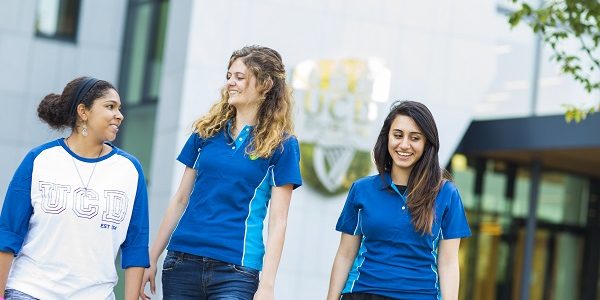Economics
BSc (Hons) (NFQ Level 8)

Course Video
Curricular information is subject to change.
Open AllEconomics explores how and why people make decisions and choose between alternative ways of spending their money and using their time, energy and skills. That is why Economics can help to shed light on decision-making in areas from love and marriage, to sports and crime. If you are interested in people’s behaviour and in current affairs, and if you enjoy problem-solving and are naturally analytical with good numeracy skills, then Economics will appeal to you.
What you will study depends on how you will be studying Economics at UCD. The Single-Major Economics (DN710) degree is a three-year concentrated course designed for students who wish to study Economics intensively throughout their time at UCD. If you wish to combine the study of Economics with another subject, you may study it as a Joint-Major subject through the four-year Social Sciences (DN700) degree.
First Year
All students will study Introduction to Economics, Principles of Microeconomics, Principles of Macroeconomics, and Introduction to Quantitative Economics. Single-Major students will study additional modules to develop key skills at the early stage in their programme, so that they may proceed to a wide range of advanced and speciality electives in second and third year. Single-Major students also select two optional modules from Sociology, Geography, Politics, Mathematics or Statistics, plus one elective modules.
Second Year
Joint-Major students will be introduced to data analysis and statistical modelling and will take intermediate modules in microeconomics and macroeconomics. Single-Major students will select from optional modules designed to build on core skills, including: Optimisation for Economics, Introduction to Financial Economics plus Elective modules.
Third Year
In their final year, Single-Major students will undertake an Economics Research Workshop and deepen their technical knowledge by taking advanced modules in econometrics, microeconomics and macroeconomics. They also have access to optional field modules such as health economics, money and banking, public economics and elective modules. Joint Major students can apply to undertake an internship or to study abroad for a trimester or year.
Fourth Year
In their final year, Joint-Major students choose modules that deepen their technical knowledge and specialise in their preferred economic fields by appropriately choosing optional modules.
Assessment
Teaching takes place in lectures and tutorials, with students also participating in small group classes to work on group projects and presentations. A combination of end of- triester written examinations and continuous assessment is used.
| StudyEconomics (BSc Social Sciences) |
|---|
as a Joint Major with one of the subjects below:
OR - with one Minor subject:
OR - within a pathway:
Student exchanges in Economics are available with the following universities:
- Tilburg, the Netherlands
- Namur, Belgium
- La Sapienza, Rome, Italy
As well as in partner universities in:
- North America
- Asia
- Australia and Europe
Including:
- University of California, Santa Cruz
- University of California, Berkeley
- University of Melbourne, Australia
Economics graduates are in high demand – our graduates work in Bank of Ireland, Price Waterhouse Cooper, KPMG, Paddy Power and Deloitte as well as different government departments and NGOs.
Economics graduates can expect to have direct access to Economics, Business and Finance Master’s.
“I decided to study Economics as part of a Joint Major because I wanted to understand in more detail how the world works – what makes governments, companies and individuals do what they do and make the decisions that they make. I chose UCD because of its reputation and the course allowed me to study Politics and International Relations alongside Economics. As part of the degree, you can also pick elective modules; I have studied a Climate Change module which was really interesting as we looked at the same problems as in economics, but from a more technical and practical viewpoint so l could understand more broadly the challenges involved in solving the climate crisis.”
Seamus Mc Caul, Student
UCD School of Economics
Newman
Belfield, Dublin 4
Email: economics@ucd.ie


